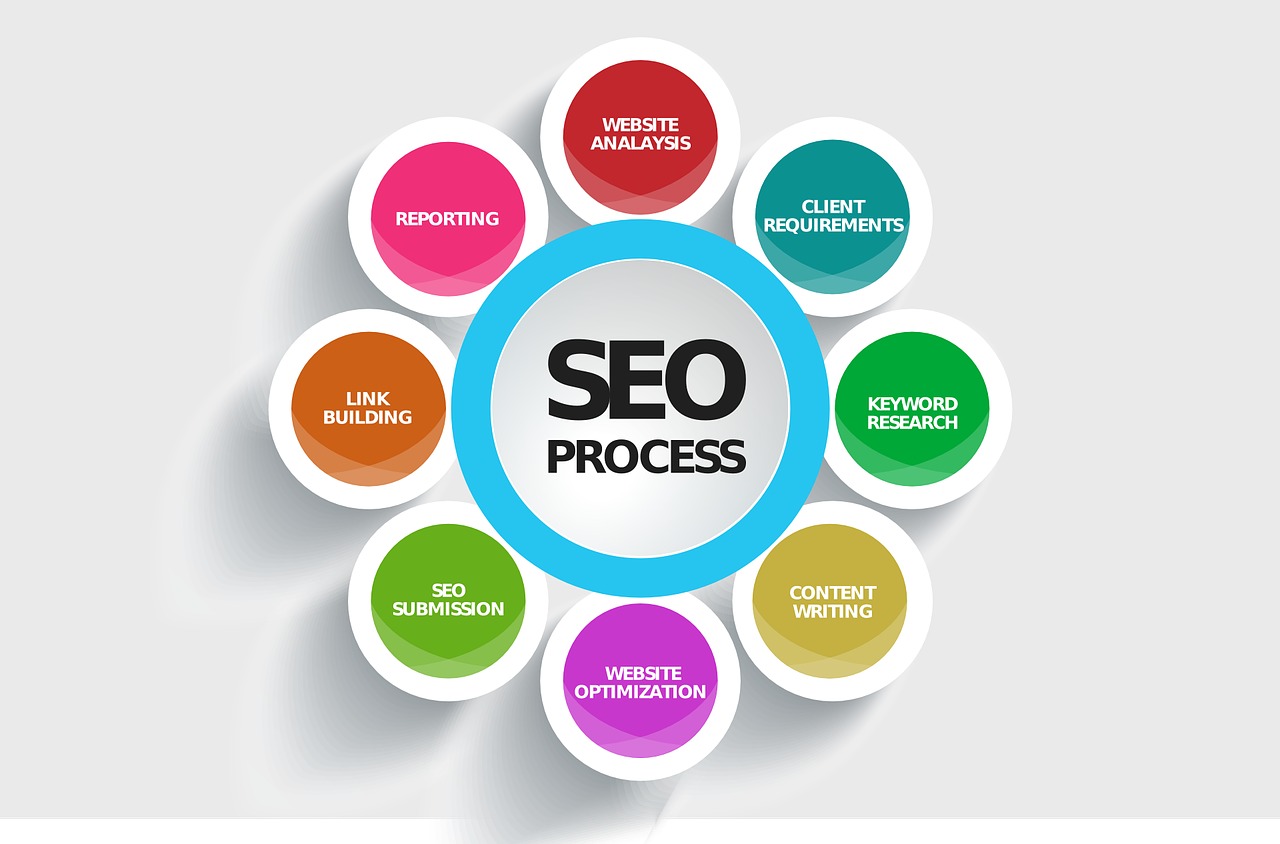
Search engine optimization (SEO) is a crucial aspect of digital marketing aimed at improving a website's visibility and ranking on search engine results pages. By implementing various strategies and techniques, website owners can enhance their online presence and attract more organic traffic.
From keyword research to on-page optimization and link building, there are several fundamental elements to consider when delving into the world of SEO. You must understand the fundamentals of SEO if you want people to find your website via Google. They're more straightforward than you would assume.
Are you just getting started with SEO? You've heard that SEO can improve your website's visibility and boost traffic, but you need to figure out how it works or where to put your attention. We'll be discussingsome basic SEO thingsin this article.
What Is Search Engine Optimization?
In order to make a website's pages more easily accessible, relevant, and famous for user search queries and consequently rank higher in search engine results, it is necessary to improve its technical setup, content relevancy, and link popularity. This process is known as SEO or search engine optimization.
Seo Practices And User Experience
Through the display of material that satisfies user search requirements, search engines promote SEO actions that improve both the user search experience and page ranking.
Among other SEO recommended practices, this entails using pertinent keywords in titles, meta descriptions, and headings (H1), as well as descriptive URLs that include keywords rather than just a string of numbers and schema markup to define the meaning of the page's content.
Search Engines And Online Visibility
People may locate what they're seeking online with the aid of search engines. Search engines are a typical place to start when you need information, whether you're looking for a restaurant, researching a product, or making travel arrangements.
They present company owners with a great chance to drive targeted traffic to your website.
Seo Goals And Target Audience
The process of positioning your website to appear higher on a search engine results page (SERP) in order to increase traffic is known as search engine optimization or SEO.
Usually, the goal is to appear on the top page of Google search results for keywords that are most important to your target market. Thus, SEO is as much about knowing your audience's preferences and requirements as it is about the technical aspects of website configuration.
Why Is SEO Important?
SEO, or Search Engine Optimization, is essential for several reasons:
- Visibility and Ranking- SEO enhances your online visibility by helping your website rank higher in search engine results. This increased visibility is crucial because people often click on the first few results, making it more likely that they'll visit your site.
- Relevance to User Intent- By optimizing your content for relevant keywords, SEO ensures that your website appears in search results when people are actively looking for information, products, or services related to what you offer.
- Increased Traffic - Higher rankings in search engine results pages (SERPs) generally lead to increased organic traffic to your website. This traffic is valuable because it consists of users actively interested in the information or products you provide.
- Credibility and Trust- Websites that appear at the top of search results are often perceived as more credible and trustworthy by users. SEO helps build your site's authority and reputation, contributing to user confidence.
- Competitive Advantage - In a digital landscape where competition is intense, SEO gives you a competitive edge. It helps you stand out among similar businesses or content creators vying for the same audience.
- Cost-Effectiveness- Compared to paid advertising, SEO can be a cost-effective strategy for long-term online visibility. While it requires effort and time, the benefits can be sustained over the long run without incurring ongoing advertising costs.
- Insights into User Behavior - SEO tools and analytics provide valuable insights into user behavior, helping you understand what your audience is searching for and how they interact with your website. This data can inform content creation and marketing strategies.
- Consistent and Passive Traffic- Unlike some other channels, search traffic tends to be consistent and passive. Once you've optimized your content and achieved higher rankings, you can continue to attract visitors without constant active promotion.
SEO is crucial for online success because it ensures that your website is not only visible but also relevant and trustworthy to users actively seeking information or solutions in your domain. The benefits extend beyond increased traffic to encompass credibility, competitiveness, and a cost-effective approach to online marketing.
Types Of SEO
Search Engine Optimization (SEO) is a crucial aspect of digital marketing, helping websites gain visibility in search engine results. Broadly, SEO can be categorized into three main types: On-Page SEO, Off-Page SEO, and Technical SEO.
Each type focuses on different elements of a website and requires specific strategies to be effective.
On-Page Seo
This type of SEO involves optimizing individual web pages to rank higher and earn more relevant traffic in search engines. On-page SEO includes optimizing the content as well as the HTML source code of a page.
Key elements include high-quality, relevant content that answers users' queries, proper use of keywords, optimizing title tags and meta descriptions, and using HTML tags (like H1, H2, etc.) to highlight important content. It also involves optimizing images through alt tags and file names. The goal is to make each page on a website informative, user-friendly, and easy to navigate.
Off-Page Seo
Off-page SEO refers to actions taken outside of your website to impact your rankings within search engine results pages (SERPs). This primarily involves building backlinks, which are links from other websites to yours.
Backlinks from reputable and relevant sites act as votes of confidence, signaling to search engines that others vouch for your content. Other off-page SEO tactics include social media marketing, guest blogging, and influencer marketing. The focus is on building the authority and trustworthiness of your site.
Technical SEO
This type focuses on the technical aspects of a website that affect its visibility in search engines. Technical SEO includes improving site speed, making a website mobile-friendly, creating an XML sitemap, ensuring a secure connection (HTTPS), and implementing structured data (schema markup).
These elements help search engines crawl and index a website more effectively, which is crucial for improving search rankings.
How Does SEO Work?
To raise the rating and exposure of a website's content, SEO works by researching keywords, crafting high-quality content, and obtaining inbound links. SEO efforts might ultimately take months to materialize, even though you can see results on the SERP once the webpage has been crawled and indexed by a search engine.
Rank
This is how search engines decide which position in the SERP for a given web page. One ranking position for a web page can be achieved at a time, with rankings beginning at position zero and continuing until the last number of search engine results for the query.
A web page's ranking may fluctuate over time as a result of factors including age, rivalry in the SERP, or algorithm modifications made by the search engine itself.
Visibility
This phrase refers to the prominence of a specific domain in search engine results. When a domain has lower search visibility, it isn't visible for many relevant search queries; conversely, when a domain has more search visibility, the reverse is true.
The two primary SEO goals are to deliver traffic and domain authority.
How Do Search Engines Actually Work?
When someone has a question and wants to look for the answer online, they use search engines. Computer programs known as search engine algorithms hunt for hints to provide users with the precise results they want.
To identify online sites and determine which ones to rank for a particular phrase, search engines rely on algorithms.
Search engines operate in three stages: the discovery stage is called crawling, the filing stage is called indexing, and the retrieval stage is called ranking.
Crawling
Crawling is the initial stage. Search engines send out web crawlers to discover new pages and gather data about them. These web crawlers are sometimes referred to as "robots" or "spiders." Their goals are to find new websites that are available and to sporadically check previously viewed pages to determine whether the information has changed or been updated.
Search engines use links they have previously found to go across web pages. As a result, when a search engine scans your homepage and finds a link to your blog post that is connected to it, it will hunt for another link to follow and click on it.
Indexing
Indexing comes in second. A search engine uses indexing to determine which of the materials it has browsed will be used. A crawled webpage will be added to a search engine's index if it is judged worthy.
This index is applied at the last round of ranking. A web page or other piece of material that has been indexed is filed and kept in a database from which it may be accessed at a later time. The majority of websites with excellent and original material are included in the index.
Ranking
The most crucial stage is really the third one, which is ranking. Only once the crawling and indexing processes are finished can ranking take place. Consequently, a search engine may rank your website after it has crawled and indexed it.
Search engines employ over 200 ranking signals to organize and classify material, and these signals are categorized under three main SEO pillars: technical, on-page, and off-page optimization.
Google Search, Google Images, and Google Maps contribute to a significant 92.96% of global internet traffic.
How Does Google Make Money?
Google makes money when users value and trust its search engine. It does this by providing insightful search results. Additionally, Google offers companies the option to purchase an advertisement to appear at the top of search result pages. These listings are indicated by the term "Ad."
When searchers click on these pay-per-click (PPC) ads that you buy through Google Ads, Google gets paid. Specifically, these advertisements will appear for more general inquiries. These search results are nearly identical to average search results but for the little label. Naturally, this is done on purpose because many users click on these results without understanding they are advertisements.
Google Network advertisements are the company's second-largest source of revenue, accounting for $32.78 billion, or 11.7% of total revenue. Ads that show up on Google partner websites fall under this category. YouTube advertisements, which were Google's third-largest revenue stream, come next.
YouTube ad income came to $29.24 billion, or 10.5% of Google's overall revenue. Google made $74.6 billion in income in the second quarter of 2023, with $42.6 billion (or 57.1%) coming from search advertisements.
What Is Local SEO For Small Businesses?
Local SEO (Search Engine Optimization) is a critical strategy for small businesses aiming to attract nearby customers. In today's digital age, where the majority of consumers turn to online searches to find local services and products, appearing prominently in local search results is essential. Local SEO helps businesses increase their visibility in these searches, specifically targeting an audience in the immediate vicinity.
According to Think With Google, approximately 30% of all mobile searches are associated with location.
One of the most effective tools for local SEO is Google My Business (GMB). This free tool allows businesses to manage their online presence across Google, including Search and Maps. By creating and optimizing a GMB listing, businesses can provide potential customers with vital information at a glance, such as business hours, location, contact details, and services offered.
An optimized GMB profile also allows for the display of photos and updates, which can enhance engagement and attract more local customers. Online reviews are another crucial element of local SEO. They not only provide social proof to potential customers but also signal to search engines that a business is trustworthy and reputable.
Encouraging satisfied customers to leave positive reviews on platforms like Google, Yelp, and Facebook can significantly enhance a business's online reputation. Additionally, responding to reviews, whether positive or negative, demonstrates that a business values customer feedback and is committed to customer service.
Understanding SEO Best Practices
SEO best practices are essential steps designed to boost a website's ranking in search engine results. These include optimizing your website, researching relevant keywords, and building backlinks.
By following these practices, you can enhance your website's visibility and draw in more organic traffic. It's crucial to ensure your site adheres to the latest SEO guidelines as a foundational step.
- Early Keyword Placement in Content- It's well-known that using your keyword several times on your page is beneficial. However, the placement of your keyword is also crucial. Aim to include your main keyword early in your content, especially at the top of your page. Google gives more importance to terms that appear early on a webpage.
- Unique Titles, Descriptions, and Content- Avoid duplicating content. This applies to all content on your site, including title tags, meta descriptions, product pages, landing pages, image alt text, and category pages. Each page should have unique content. For large sites, like eCommerce platforms with numerous products, this can be challenging but is very important. Consider merging similar pages or using canonical tags if necessary.
- Optimize Your Title Tag- Title tags are crucial for on-page SEO. Google emphasizes the importance of high-quality titles.
- Improve Site Loading Speed- Google rarely discusses specific ranking factors, so when they emphasize something like site loading speed, it's significant. Start by measuring your current loading speed, then work on improvements, especially for mobile devices.
- Use Google Search Console for Tracking - The Google Search Console is essential for monitoring your SEO performance. It offers various tools and features, though you may only need some of them.
- Optimize Images for SEO- Image optimization is vital not just for Google Images but also for web search rankings. Ensure your images are SEO-friendly.
- Effective Internal Linking- Link from one page on your site to another relevant page. This should be more strategic than just random linking.
- Enhance Site User Experience (UX) - Improving UX can directly and indirectly boost SEO. Google tracks user behavior, like quickly returning to search results after visiting a site (known as "Pogo sticking"). If this happens often, it can negatively impact your rankings.
Emerging Trends In SEO
The landscape of Search Engine Optimization (SEO) is continually evolving, with new trends emerging that are reshaping how content is created and consumed. These trends are critical for businesses and SEO professionals to understand and integrate into their digital strategies.
Voice Search Optimization
The rise of digital assistants like Siri, Alexa, and Google Assistant has led to a surge in voice search usage. Unlike traditional text-based searches, voice queries are typically more conversational and longer. This change requires a shift in keyword strategy, focusing on natural language and long-tail keywords that reflect how people speak.
To optimize for voice search, content should be crafted to answer specific questions directly and conversationally. This approach not only caters to voice search queries but also enhances the user experience for those seeking quick and precise answers.
Artificial Intelligence (AI) In SEO
AI is revolutionizing the way search engines function and how SEO strategies are formulated. AI algorithms are adept at analyzing complex patterns in user behavior, preferences, and search habits, leading to more tailored search results.
For SEO practitioners, this means prioritizing content that genuinely aligns with user intent and interests. AI's role extends to automating routine SEO tasks, such as keyword research and data analysis, making SEO efforts more efficient and data-driven.
Mobile-First Indexing
With mobile devices now the primary means for internet access, search engines are placing greater emphasis on mobile-friendly websites. This trend has led to mobile-first indexing, where the mobile version of a website is the primary basis for indexing and ranking.
Ensuring a responsive design that provides a consistent and seamless user experience across all device types is no longer optional but essential. This includes optimizing site speed, layout, and navigability for mobile users.
Video Content Optimization
The growing popularity of video content has not gone unnoticed by search engines. Videos are increasingly favored in search results, making their optimization crucial for SEO. Effective video SEO involves crafting descriptive, keyword-rich titles and descriptions and using appropriate tags.
Additionally, providing transcripts and subtitles can significantly boost SEO efforts, as it makes video content accessible to a broader audience, including those with hearing impairments and non-native speakers. This approach not only improves accessibility but also allows search engines to understand better and index the video content.
FAQs About Basic SEO
What Is The Importance Of Technical SEO?
Technical SEO focuses on a website's technical aspects, like site speed and mobile-friendliness, to enhance its visibility and ranking in search engines.
What Does Off-Page SEO Entail?
Off-page SEO includes actions outside your website, like building backlinks and engaging in social media marketing, to improve your site's authority and ranking.
How Do Emerging Trends Like Voice Search And AI Affect SEO?
Emerging trends like voice search and AI require adapting SEO strategies to focus on natural language, user intent, and efficient, data-driven optimization.
Final Words
As the digital landscape continues to evolve, so too does the field of SEO. This is a dynamic and ongoing process. It requires a strategic approach, a willingness to adapt to new trends and technologies, and a deep understanding of your audience's needs and search behaviors. It is very crucial to understand some basic SEO things to start a business or a website.
By keeping these principles in mind, you can create a robust SEO strategy that not only improves your website's visibility but also enhances the overall experience for your visitors. Remember, SEO is not a one-time task but a continuous effort to improve and adapt. With dedication and the right approach, you can achieve significant improvements in your website's search engine rankings and, ultimately, its success.




